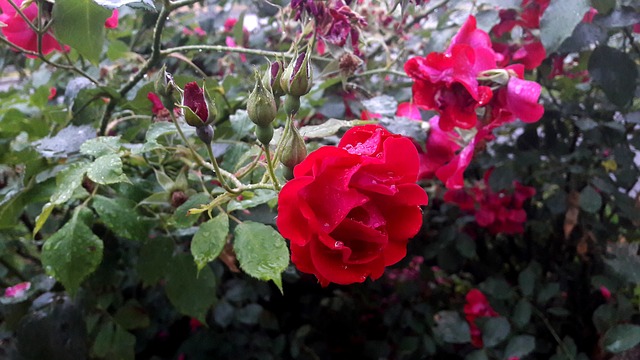Don’t Prune Roses In Fall! Here is why…

Whenever someone complains that they can’t grow roses, Patti Jacko asks if the gardener pruned in the fall. If the answer is yes, the mystery is solved. “Pruning in fall will kill them,” said Jacko, a rose expert who grows 158 varieties at her home in Hinckley. Pruned roses lose food stored in the branches that will keep roots healthy over winter. “They need that extra nutrition,” said Jacko, a member of the American Rose and the Western Reserve Rose societies.
Fall pruning also signals roses that it’s time to grow, but the new growth will die in when cold temperatures arrive, said Peter Schneider, a rose enthusiast who raises more than 1,200 varieties at his Freedom Gardens in Portage Co. “It starts at a disadvantage in spring,” he said. “It’s much better for the rose if you resist pruning until spring.”
Stop deadheading and fertilizing too, say rose experts, to signal to the plants that it’s time to go dormant!
There are steps rose growers can take to be sure their gardens get off to a good start next spring
Make sure that the graft point on grafted or hybridized roses is completely covered under soil. Otherwise, the thaw-freeze cycle in winter will kill the plant. You can tell if your rose was grafted – a propagation method in which the roots of one variety are attached to stems from another variety – if all of the branches are coming out of a golf-ball-sized root. That ball must be well protected from winter weather, she said.
Growers who hybridize roses are collecting the rose hips, or seed pods, to save them for spring, Schneider said. Some roses have colorful rose hips that add winter interest to gardens.
Many rose growers believe roses must be covered during the winter
It used to be popular to put Styrofoam cones over roses for winter, but that made it necessary to cut the plants low to fit in the cone, Schneider said. That meant the plant was starting from almost zero come spring, so the cones have largely fallen out of favor, he said.
He does put burlap bags filled with straw over his tree roses, which are varieties that grow straight up and bloom high off the ground. The bag protects against winter damage and the lack of light keeps the plant dormant. Any new plant growth that takes place during mild spells will die when temperatures turn cold again, he said.
Cucumber bugs and Japanese beetles have mostly left the garden by now, but diseases such as black spot and powdery mildew are still factors. Clean out dead leaves and debris that could carry black spot from around rose bushes, Jacko said. You can also spray for black spot, but be sure to choose a product that doesn’t include fertilizer.
She sprinkles lime sulfur on her roses to kill dormant black spot spores lurking in the soil. That is the last thing to do before you leave them on their own for the winter.
Source: www.cleveland.com


